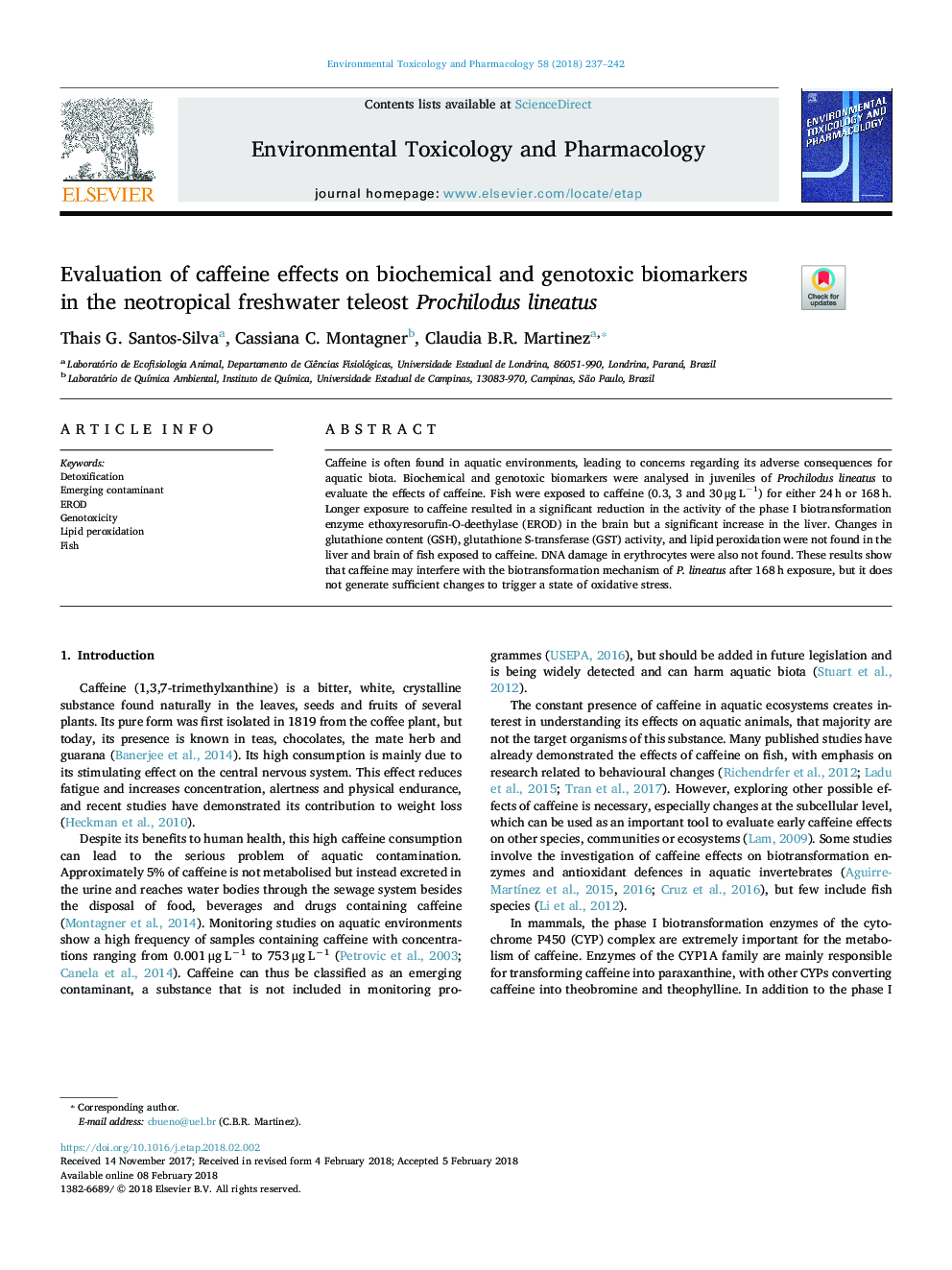| Article ID | Journal | Published Year | Pages | File Type |
|---|---|---|---|---|
| 8546087 | Environmental Toxicology and Pharmacology | 2018 | 6 Pages |
Abstract
Caffeine is often found in aquatic environments, leading to concerns regarding its adverse consequences for aquatic biota. Biochemical and genotoxic biomarkers were analysed in juveniles of Prochilodus lineatus to evaluate the effects of caffeine. Fish were exposed to caffeine (0.3, 3 and 30â¯Î¼gâ¯Lâ1) for either 24â¯h or 168â¯h. Longer exposure to caffeine resulted in a significant reduction in the activity of the phase I biotransformation enzyme ethoxyresorufin-O-deethylase (EROD) in the brain but a significant increase in the liver. Changes in glutathione content (GSH), glutathione S-transferase (GST) activity, and lipid peroxidation were not found in the liver and brain of fish exposed to caffeine. DNA damage in erythrocytes were also not found. These results show that caffeine may interfere with the biotransformation mechanism of P. lineatus after 168â¯h exposure, but it does not generate sufficient changes to trigger a state of oxidative stress.
Related Topics
Life Sciences
Environmental Science
Health, Toxicology and Mutagenesis
Authors
Thais G. Santos-Silva, Cassiana C. Montagner, Claudia B.R. Martinez,
